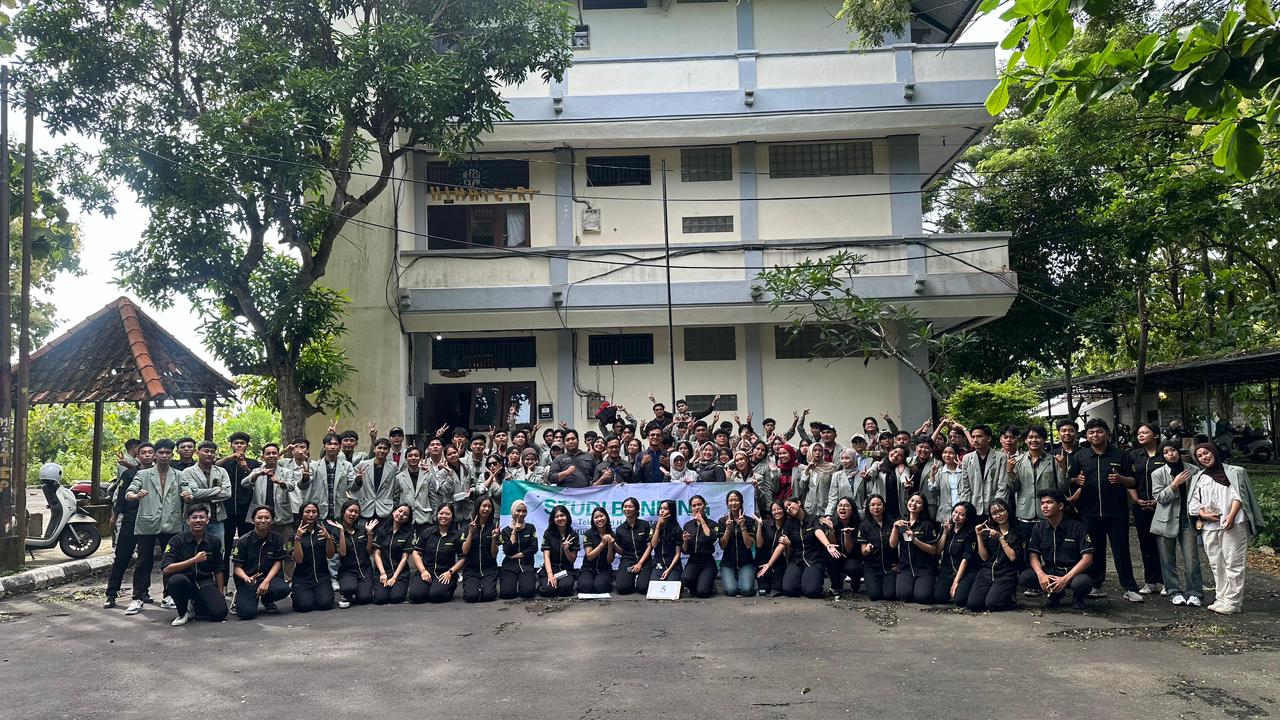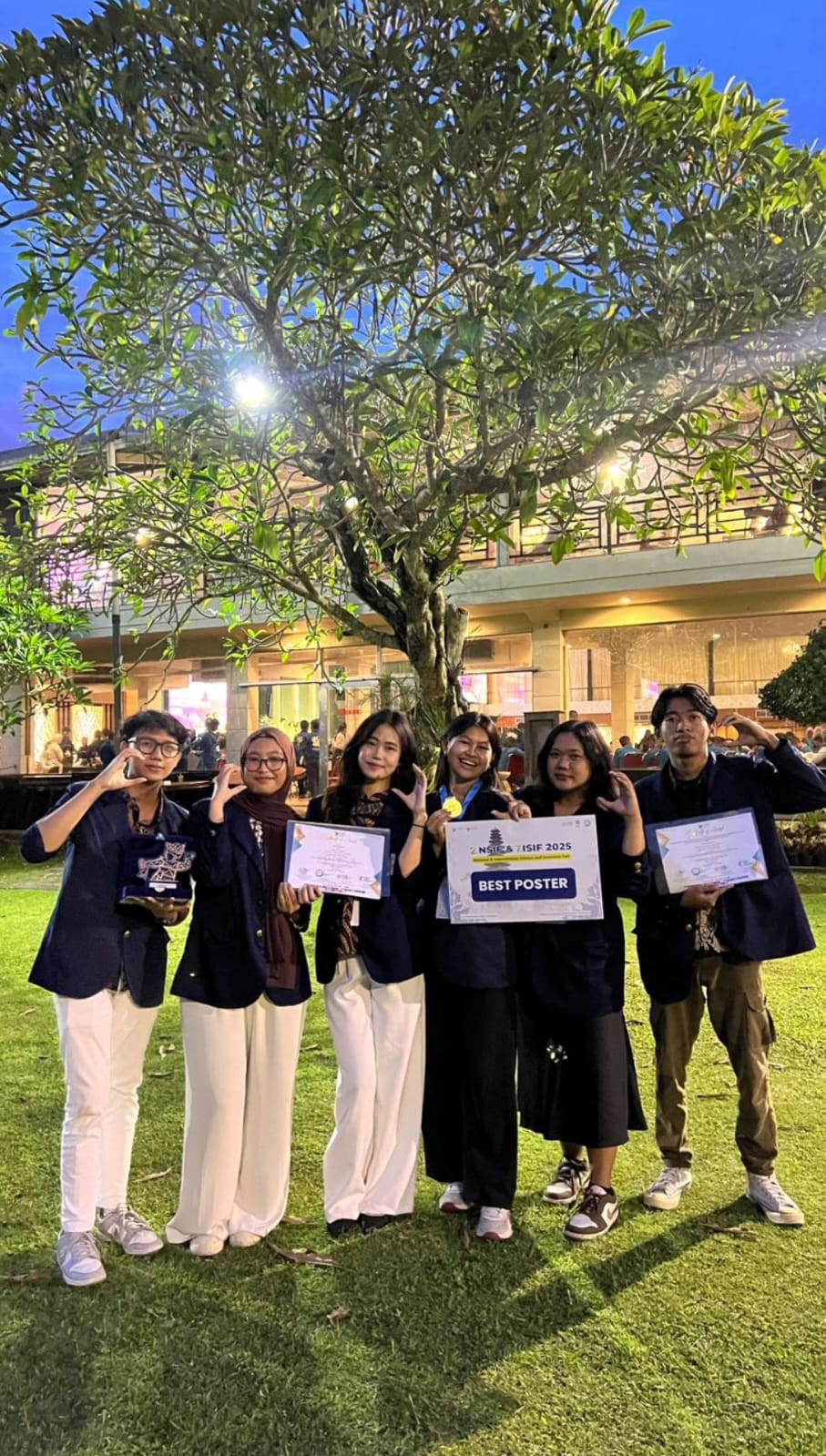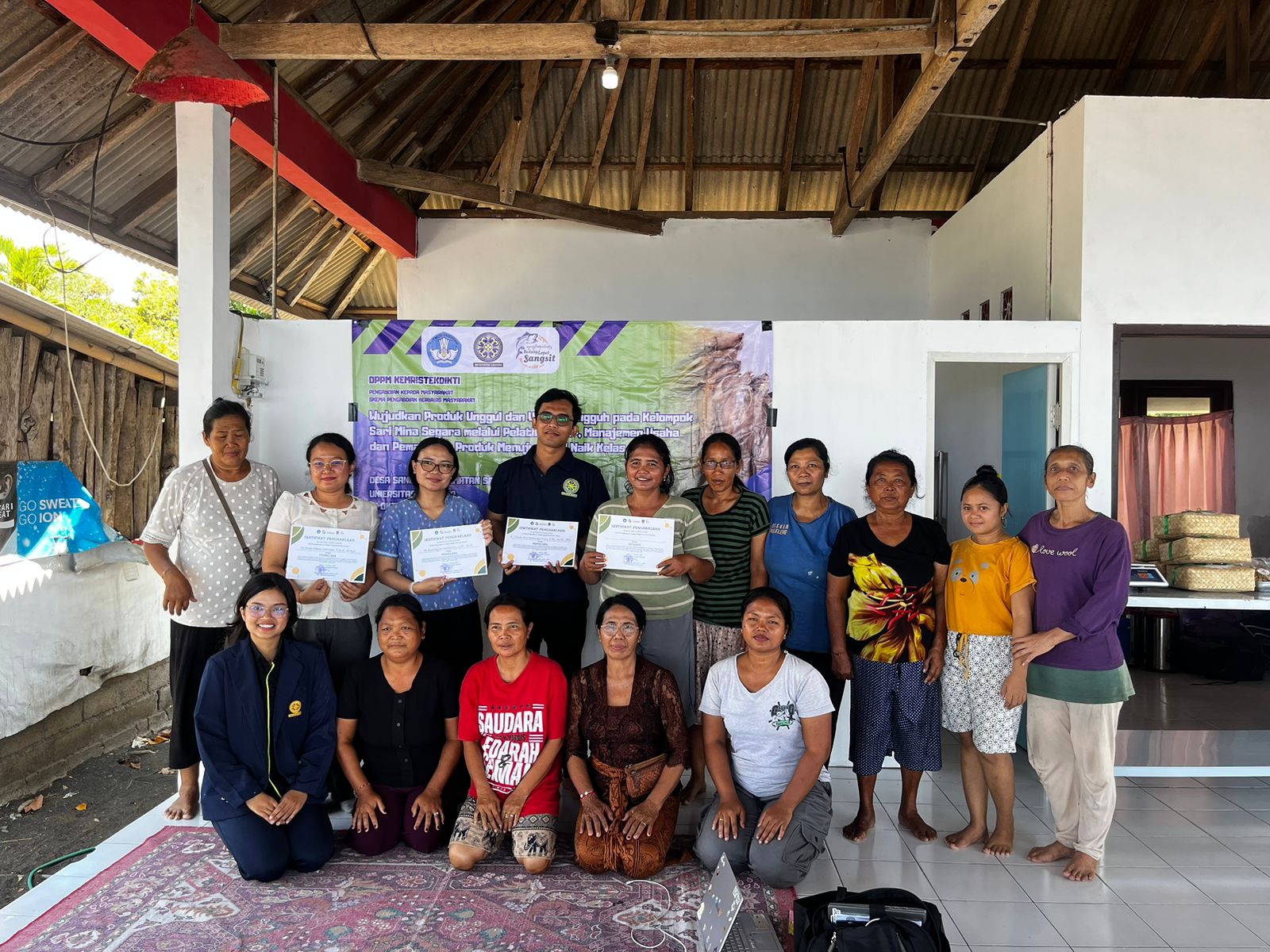Curriculum
The curriculum
of the Food Technology Major, Faculty of Agricultural Technology, Udayana
University refers to the Regulation of the Minister of Education and Culture
No. 3 of 2020, concerning the National Standards for Higher Education, Graduate
competency standards are the minimum criteria regarding the qualifications of
graduate’s abilities which include: attitudes, knowledge, general skills, and
special skills. Food Technology major, Faculty of Agricultural Technology,
Udayana University prepares Graduate Learning Outcomes (GLO) which aims to
achieve a graduate profile of the major.
Profile
of Graduates
Based on the
graduate learning outcomes (GLO) which are arranged in the Food Technology major’s
curriculum, the graduates of Food Technology major has the following
capabilities:
1. Food Researcher (F)
Graduates have
the ability to conduct research in the food sector, namely exploring the
potential of traditional food, local food and food ingredients that have not
been utilized in the development of food products.
2. Food consultant (K)
Graduates are
able to provide consulting services in the food sector in large, medium and
small industries.
3. Food entrepreneur (W)
Graduates are
able to start their own business in the food sector, both in the form of fresh
ingredients and processed products, and manage them professionally.
4. Food Supervisor (S)
Graduates are
able to provide supervision to the food industry in processing, controlling and
improving product quality.
Learning
Outcomes of Graduates Learning
Learning
outcomes of Food Technology major graduates that supports the profile of major
graduates, are as follows:
a. Knowledge is the systematic mastery of concepts, theories, methods, and/or philosophies of a particular field of science obtained through reasoning in the learning process, student work experience, research and/or community service related to the learning process. Knowledge (P) includes:
- Able to characterize the structure and properties of food components, as well as the characteristics of food ingredients (P1).
- Able to analyse chemical changes during processing, storage and utilization (P2).
- Able to determine and demonstrate the principles of physical, chemical, and biological analysis of food components and food ingredients both qualitatively and quantitatively (P3).
- Able to characterize pathogenic, spoilage and beneficial microbes in food processing (P4).
- Able to apply and modify the principles of food preservation (P5).
- Able to create materials and packaging methods (P6).
- Able to apply sanitation and hygiene in the food industry (P7).
- Able to apply food industry waste management (P8).
- Able to apply Food Industry Management (P9).
- Able to apply computers and statistics in solving problems in the field of food technology (P10).
- Able to plan quality assurance and food product safety as well as food regulations and regulations (P11).
- Able to correlate biochemical principles and biological values ??of food and their effect on nutritional status and body health (P12).
b. Special Skills Special
Specific work
abilities that must be owned by every graduate in accordance with the
scientific field of the program. Specific skills (KK) include:
1. Able to use various food
analysis techniques according to the characteristics of materials and needs
(KK1).
2. Able to design a safety
assurance system for fresh and processed food products (KK2).
3. Able to apply and incorporate
food science principles and develop new food product concepts (KK3).
4. Able to apply IT and
statistics in solving problems in the field of food technology (KK4).
5. Able to apply management and entrepreneurship
in the food sector (KK5).
6. General Skills are general
work skills that must be owned by every graduate in order to ensure the
equality of graduates' abilities according to the program level and type of
higher education.
c. General skills (KU) include:
1. Able to apply logical,
critical, systematic, and innovative thinking in the context of the development
or implementation of science and technology that considers and applies
humanities values ??in accordance with their field of expertise (KU1).
2. Able to demonstrate
independent, high quality, and measurable performance (KU2).
3. Able to examine the
implications of the development or implementation of science and technology
that considers and applies humanities values ??according to their expertise
based on scientific rules, procedures and scientific ethics in order to produce
solutions, ideas, designs or art criticism, compose a scientific description of
the results of their studies in the form of a thesis or final project report,
and upload it on the college page (KU3).
4. Compile a scientific
description of the results of the studies mentioned above in the form of a
thesis or final project report, and upload it on the university's website
(KU4).
5. Able to make appropriate
decisions in the context of solving problems in their area of ??expertise,
based on the results of information and data analysis (KU5).
6. Able to maintain and develop a
network with supervisors, colleagues, colleagues both inside and outside the
institution (KU6).
7. Able to be responsible for the
achievement of group work results and supervise and evaluate the completion of
work assigned to workers under their responsibility (KU7).
8. Able to carry out the process
of self-evaluation of the work group under their responsibility, and able to
manage learning independently (KU8).
9. Able to document, store,
secure, and rediscover data to ensure validity and prevent plagiarism (KU9).
10. Attitude is right and cultured behavior as a result of
internalizing and actualizing values ??and norms that are reflected in
spiritual and social life through the learning process, student work
experience, research and/or community service related to the learning process.
d. Attitude (S) includes:
1. Fear of the Almighty God and
able to show a religious attitude (S1).
2. Upholding human values ??in
carrying out duties based on religion, morals, and ethics; (S2).
3. Contribute to improving the
quality of life in society, nation, state, and the progress of civilization
based on Pancasila (S3).
4. Taking a role as citizens who
are proud and love their homeland, have nationalism and a sense of
responsibility to the country and nation (S4).
5. Appreciate the diversity of
cultures, point of views, religions, and beliefs, as well as the opinions or
original findings of others (S5).
6. Work together and have social
sensitivity and concern for society and the environment (S6).
7. Obey the law and discipline in
social and state life (S7).
8. Internalize academic values,
norms, and ethics (S8).
9. Demonstrate a responsible
attitude towards work in their field of expertise independently (S9).
10. Internalize the spirit of independence, struggle, and
entrepreneurship (S10)



UDAYANA UNIVERSITY